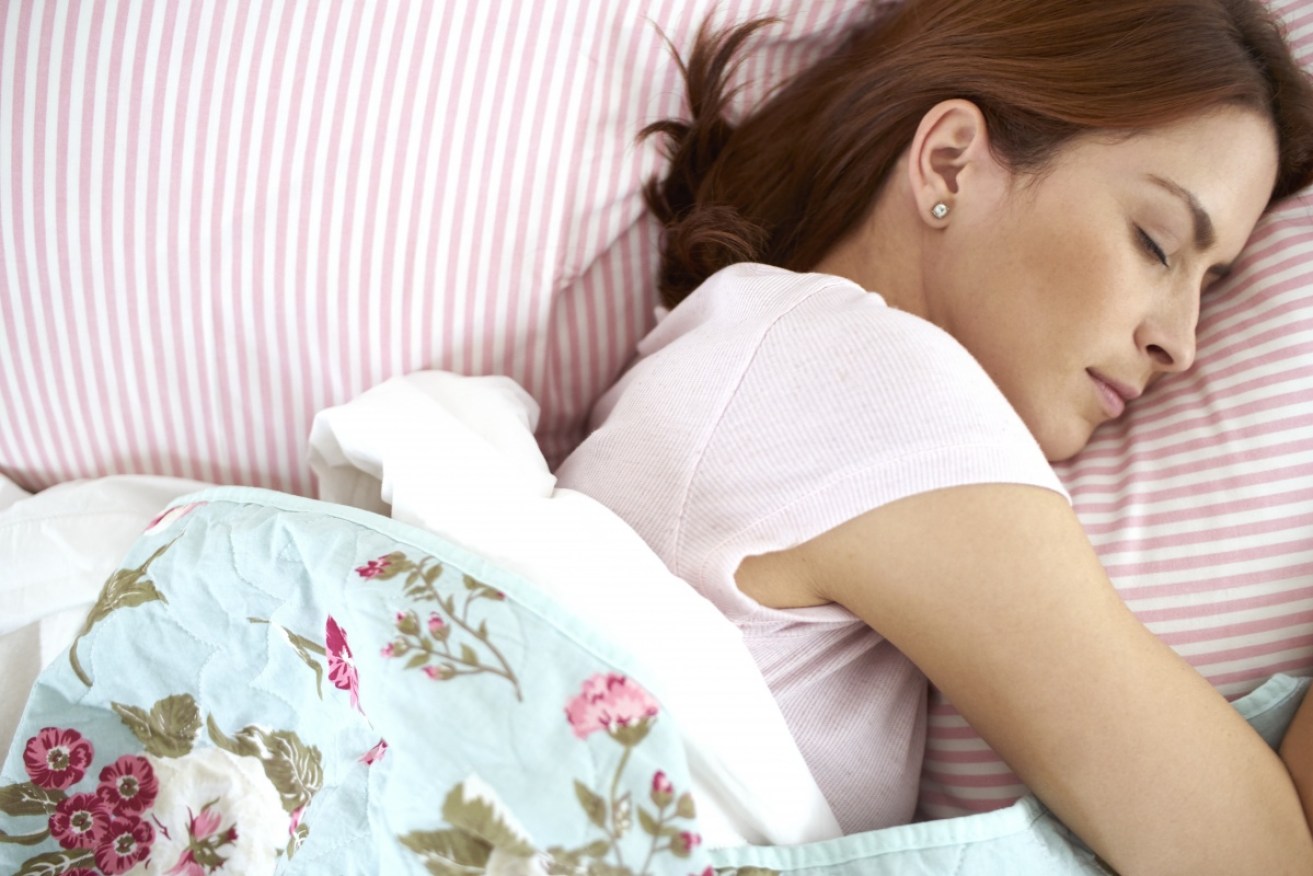How to fix the yawning gap between modern life and healthy sleep patterns


Here are things you can do today to maximise the chances of a good night's sleep tonight. Photo: Getty
Almost half of Australians are not getting enough sleep and experts say it’s an issue that must be addressed because it is costing the economy more than $66 billion annually.
A Deloitte report, commissioned by the Sleep Health Foundation, found that 40 per cent of Australians across all age groups experience insufficient or poor quality sleep each night.
It estimates that is costing $26.2 billion in financial costs and $40.1 billion in a loss of wellbeing.
Fatigued drivers were blamed for causing more than one in five road incidents on Australian roads. More than one Australian dies every day – 394 each year – from falling asleep at the wheel while driving to or from industrial accidents.
Melbourne Sleep Disorders Centre psychologist Hailey Meaklim told The New Daily a poor quality night’s sleep can impede decision making, memory, learning, concentration and mood.
If it becomes a chronic problem, lack of sleep can lead to heart disease, obesity and mental health issues such as depression.
Ms Meaklim and Garun Hamilton, clinical chair of the Australasian Sleep Association, say in a stressful modern world healthy sleep patterns should be prioritised by individuals, workplaces and at government level.
So how can you improve your sleep and stay safer and healthier?
1. Light exposure
Ms Meaklim said maximising light exposure throughout the day helps signal to the brain that it’s day time and encourages the brain to be alert, beginning with opening the curtains in the morning.
2. Managing stress

Riding a bike to and from work is one way to get more exercise during the day. Photo: Getty
“It is important to find ways to take a breather during the day, be it a tea or coffee break or going outside for a walk,” Ms Meaklim said.
“It will be helpful for sleep later that night.”
Australasian Sleep Association’s Dr Hamilton warned against brooding on the following day’s stresses in the evening, suggesting meditation as one technique.
“Mindfulness can really help people calm the mind and focus on breathing. You only need to do it briefly for up to five to 10 minutes.”
3. Diet and exercise
Dr Hamilton recommended exercising during the day, at least three hours before bed, for more than half an hour. This is especially important for office workers.
He said to avoid drinking alcohol in excess as while it tends to have a relaxing effect, high amounts of alcohol consumption leads to fragmented sleep.
Food or drinks containing caffeine should be avoided from as early as 3pm.
University of NSW Neuroscience Research Australia associate professor Danny Eckert told The New Daily it was best to avoid eating a heavy meal late at night, especially something spicy if they’re prone to reflux.
4. Daytime nap
Assoc Prof Eckert said that one of the lesser well-known causes of sleep problems is due to people commuting further to travel to and from work.
“And almost 20 per cent of Australians are shift workers,” he said.
“You could really benefit from a short nap during the day, between 10 to 20 minutes, to optimise performance. But too much sleep during the day can disturb night sleep.
“We can fix the health and productivity of the nation if we can fix our sleep.”
5. Regular routines
Ms Meaklim said that something as simple as getting out of bed when the alarm goes off, rather than giving in to the temptation of hitting the snooze button, assists with a healthy sleep routine.
“In the morning we experience ‘sleep inertia’ which is that groggy feeling. Pressing the snooze button a couple of times doesn’t make us feel any better later on in the day,” she said.
“We should also allow enough time to have some breakfast and not just rush out the door.”
University of South Australia’s Stephanie Centofanti, from the Centre for Sleep Research, said it was important to go to bed and wake up at a similar time each day, including the weekends.
“This will help to keep your body clock in sync,” she said.
6. Minimising blue light
Electronic device screens emit light at wavelengths that affect the hormone melatonin which promotes sleep, so use of these devices at night can detrimentally impact sleep.
Ms Meaklim encouraged employers and senior staff to set a good example of “respect for sleep” by not sending or expecting emails after hours.
“Sometimes it’s about working smarter, not longer,” she said.
7. Bedroom temperature
University of Sydney Associate Professor Chin Moi Chow said 20 to 22 degrees represent the thermo-neutral temperatures that are most conducive for sleep.








